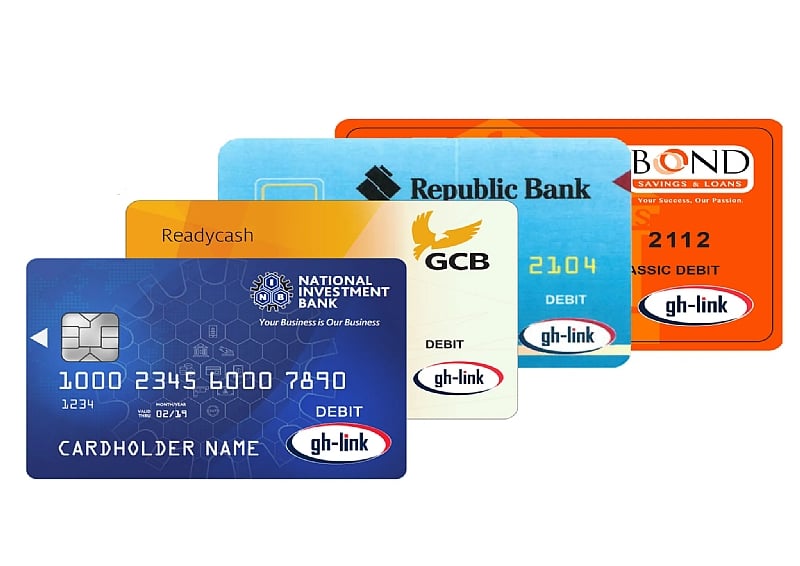The Ghanaian financial landscape presents a unique contrast to developed economies in terms of credit card penetration. As of the end of 2024, a mere 68,000 credit cards were in circulation, a figure representing less than 1% of total cards and just over 1% of the 6.3 million debit cards issued. This stark difference highlights the limited access to credit card facilities within the country. In comparison, credit card usage in developed economies like the UK and the US reaches levels of 68% and 82% of adults, respectively, demonstrating a much higher reliance on credit-based spending. Even within the African context, South Africa boasts a significantly higher credit card penetration, with roughly 28% of credit consumers utilizing this financial tool. This disparity underscores the unique challenges and opportunities within the Ghanaian financial market.
One of the key contributing factors to the low credit card penetration in Ghana is a common misconception surrounding the definition of credit cards. Many Ghanaians mistakenly use the term “credit card” to refer to debit cards, particularly when making transactions at point-of-sale (POS) terminals. This conflation stems from a lack of clear understanding of the fundamental difference between the two card types. Debit cards, often referred to as ATM cards in Ghana, are directly linked to a user’s bank account and allow spending only within available funds. Credit cards, on the other hand, essentially function as a short-term loan, allowing users to borrow funds from the issuing institution and repay them later, often with interest. This distinction is crucial for understanding the different financial implications of using each card type.
The scarcity of credit cards in Ghana is rooted in stringent eligibility criteria imposed by financial institutions. Banks typically require applicants to demonstrate a strong credit history and provide a verifiable residential address. These requirements pose significant challenges for many Ghanaians due to the country’s underdeveloped address system and the limited availability of comprehensive credit scoring infrastructure. This effectively excludes a large segment of the population from accessing credit card facilities, despite their potential need or capacity to manage credit responsibly. In contrast, the issuance of debit cards is directly tied to the opening of a bank account, making them significantly more accessible and widespread. This accessibility contributes to the prevalence of debit card usage and further highlights the disparity in access to different financial instruments.
Adding to the complexity of the Ghanaian card payment landscape are prepaid bank cards, which numbered 561,000 by the end of 2024. Prepaid cards differ from both credit and debit cards in their functionality. Users are required to load funds onto the card before use, essentially limiting their spending to the preloaded amount. This characteristic makes prepaid cards a popular choice for budgeting and controlled spending. Unlike debit cards that draw directly from a linked bank account, prepaid cards offer a layer of separation, allowing users to manage their finances independently. The increasing use of prepaid cards suggests a growing awareness among Ghanaians of different card functionalities and their respective benefits.
Despite the continuing significance of bank cards in various forms, a notable shift in the Ghanaian payment landscape is the rise of mobile money transactions. The 2024 West Africa Banking Industry Customer Experience Survey reveals a decline in ATM usage from 59% in 2023 to 48% in 2024. This decline coincides with a steady increase in mobile money transactions, indicating a growing preference for this payment method. This shift highlights the increasing accessibility and convenience of mobile money platforms, which are increasingly catering to the needs of a population with limited access to traditional banking services. The rapid adoption of mobile money underscores the transformative potential of technology within the financial sector in Ghana.
The evolving dynamics of the Ghanaian payment ecosystem reveal both challenges and opportunities. The low credit card penetration reflects the need for improved credit infrastructure and financial literacy. Simultaneously, the growth of mobile money presents a viable alternative, providing financial inclusion for a wider segment of the population. This evolving landscape necessitates a proactive approach from financial institutions and regulators to adapt to changing consumer preferences and promote responsible financial practices. As Ghana progresses economically, the development of a robust and inclusive financial system will be crucial for sustained growth and prosperity. The observed trends suggest a future where digital financial services play an increasingly prominent role, further transforming the financial landscape of the country.


